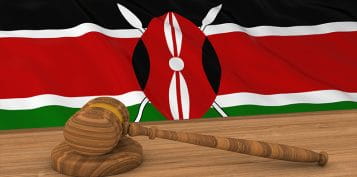Colorado Gambling Laws – Legal Gambling in CO
Colorado gambling laws keep a tight rein on things, so it’s important to make sure you are compliant. At first blush, only social gambling and the lottery are permitted under the law, but that is not quite so. Other types of wagers can be placed too at designated venues that are also regulated by the state. In any case, you’d want to know that you are doing everything by the law before proceeding with a bet.
These are, more or less, the highlights of what we are going to discuss. Feel free to jump to the topic that interests you the most or stick with us from start to finish. If you like sports action better than games of chance, don’t worry – there is something for the sports fans to enjoy too, and it’s perfectly legal.
Illegal Activity Under the Colorado Gambling Laws
Firstly, we will need to set our definitions straight because playing fast and loose puts us at risk of misinterpreting the law. Gambling can be described as the act of putting money or valuables at risk for the purpose of winning a prize. The participant cannot influence directly the outcome, which determines whether they win or lose.

One such definition would place any gain that was not the result of deliberate use of skill under the ‘gambling’ category. That, on paper, would make it at odds with the current legislation in Colorado. Luckily, punters can catch a break because the situation isn’t as gloomy as it seems. In fact, there are legal land-based casinos in the state and some horserace betting opportunity that is not to be neglected.
Legal Activities According to the Gambling Laws in Colorado
As it turns out, there is more than one avenue for punters in the state to explore. The CO gambling legislation isn’t completely restricting punters from having their fair share of wagering action. It’s crucial, however, not to cross the fine line between legal and illegal. These are the legal forms of gambling:
- Land-Based Casino Gambling
- Sports Betting
- Fantasy Sports
- Social Casinos
- The Colorado lottery
You might be tempted to go online and find a site that hosts games of chance, but this is not a good idea. Just how serious do class 1 petty offence, class 1 misdemeanor, class 5 felony sound to you? Well, a repeating gambling offender commits a class 5 felony as per Colorado’s criminal laws. Read the following notes to form a better understanding of what is permitted by law.
Land-Based and Online Casino Gambling
When it comes to land-based casinos, you’ll have difficulty finding any if you don’t know that such are present only in three towns in the state. Those are Central City, Black Hawk, and Cripple Creek. Quite a few casinos could be found in the central area of those three towns. And those are not just any casinos, but ones with reputation and diverse gambling areas.
Much to our regret, there are still no Colorado online gambling laws, and neither is there any online industry for that matter. Lawmakers still hold an unfavorable view of remote casinos, probably because they are harder to regulate. Online poker shares a similar fate – an unsuccessful attempt to pass a bill legalizing online poker was made in 2013. Still, we do hope that when it comes to online gambling laws, Colorado will take the necessary steps to create meaningful legislation.
Sports Betting
Passing proposition DD in November of 2019 has made possible the legalization of sports betting in Colorado. The Colorado Limited Gaming Control Commission and the Colorado Division of Gaming together form the body regulating the state’s sports betting market. The Department of Revenue has published on its web page the most important sports betting rules and regulations in Colorado gambling law.
Fantasy Contests
Colorado became the fifth state to enact legal rules for daily fantasy sports (DFS) in 2016 when Governor John Hickenlooper enacted bill H 1404. The operators organizing contests of this type are officially regulated by the Division of Gaming. Only DFS operators with more than 7,500 customers have required a license, while smaller ones are registered and officialized.
Social Casinos
Social gambling practically doesn’t involve real money wagering, so it is the safest route to take if you are simply looking to have a good time. It’s a given the regulated market is also safe being governed by the state. If you are ready to risk your own money, you can give the other types of gambling a go.
Colorado Department of Revenue – The Official Regulator
In short, this is a state agency entrusted with the collection of almost all tax types, including gaming taxes. It is the authority that enforces gambling laws in Colorado. Among other things, the Colorado Department of Revenue is the place where a state resident can get or renew a driving license or ID card.

It’s important to note that the Department is not a single unit but has several divisions laser-focused on different sectors. The modular structure seems to be working very well so far, although some newer gamblers may fail to understand it fully. These are the two divisions with relation to gaming.
Division of Racing
As far as horse racing is concerned, the gambling laws in Colorado are enforced by the Racing Division. The Division takes care of devising the rules for anything from stables standards to the license criteria. Four license categories are recognized: support, registration, key, and business.
Division of Gaming
After the HB20-1286 Sunset Regulation of Fantasy Sports, the domain of fantasy contests is now regulated by the Division of Gaming in the Department of Revenue. A substructure called The Limited Gaming Control Commission has the final word on license granting and taxation rates concerning limited gaming. It’s made of five members with different backgrounds and mostly different political orientations.
Taxation According to the Colorado Gambling Laws
The gaming tax was first put to use in 1991 – the year when casinos were gaming became legal in Black Hawk, Central City, and Cripple Creek. Up to this day, tax is only the profit of a casino, which is defined as the sum collected minus the money paid off. The primary sources of tax revenue as it stands are the Colorado Lottery and licensed casino operators.
Taxes for Gambling Operators
Casino gambling tax is in the hands of the five-member board of the Colorado Limited Gaming Control Commission. The members thereof have the legal right to regulate tax rate as long as it doesn’t exceed 40%. As it stands, the Commission has chosen the accelerating rates taxation model, which progressively increases tax rate with as annual revenue increases. The taxation plan is as follows:
| Casino Adjusted Gross Proceeds | Tax Rate |
|---|---|
| Up to $2,000,000 | 0.25% |
| $2,000,001 to $5,000,000 | 2% |
| $5,000,001 to $8,000,000 | 9% |
| $8,000,001 to $10,000,000 | 11% |
| $10,000,001 to $13,000,000 | 16% |
| + $13,000,001 | 20% |
The tax for sports betting licensees is set at 10%. Tax revenue for 2020 alone is estimated at $3.4 million – an overachievement that drastically accelerated the Colorado Water Plan. Sufficient funds were raised one year ahead of the initial projection. Lottery taxes are the biggest, but the money is used by the state for education and other noble causes.
Gambling Taxes for Players
As is the practice in other states, lottery winnings amounting to more than $5,000 are taxed. In that case, the amount withheld by the Lottery is 28% of the total winnings. With casinos, it’s a bit different. The practice is the casino to subtract 25% of your winnings before paying you. The tax comes into play when winnings exceed $5,000 or 300 times the bet amount.
The situation with fantasy sports and other forms of gaming is similar. Licensed operators take care of taxing and send you a Tax Form via mail or email. Taxing only occurs when annual winnings exceed a given amount. Since we don’t have concrete information, we’ll abstain from speculating what the exact numbers are.
Gambling Age in Colorado
The gambling age in Las Vegas and Colorado is the same. Here is what the gambling age in Colorado looks like for all permitted forms of gambling:
- 21 years – casino gambling
- 21 years – horse race betting
- 18 years – lottery
- 18 years – bingo
The age for legal marijuana use is 21 years. The situation is similar to the Colorado casino gambling laws in that you can buy marijuana only from licensed retail stores. For a successful purchase, one should provide a government-issued ID. Restrictions on the quantity that can be bought and possessed also apply.
CO Criminal Gambling Law CRS 18-10-103
We touched already on how serious illegal gambling can be. Doing this repeatedly can get you into serious trouble. This is the right place to mention that professional gambling isn’t looked upon as something good. It is actually regarded as an underhand tactic for profiting from unsuspecting victims. Whether this view is fair or not, isn’t up for discussion.

The fact of the matter is perpetrators could be facing 6 to 18 months jail time and up to $5,000 in fines. It could get even worse if an act is recognized as a class 6 felony. The only way of avoiding jail time or paying a fine is to prove in court that the committed act doesn’t correspond with the legal definition of gambling.
FAQ
Do you still wonder what is legal to bet on in CO? This section will address the common issues people have tried to understand how legal gambling works in the state. If you are looking for answers, go through the Q&A below. Here are the most frequently asked gambling questions in Colorado.


